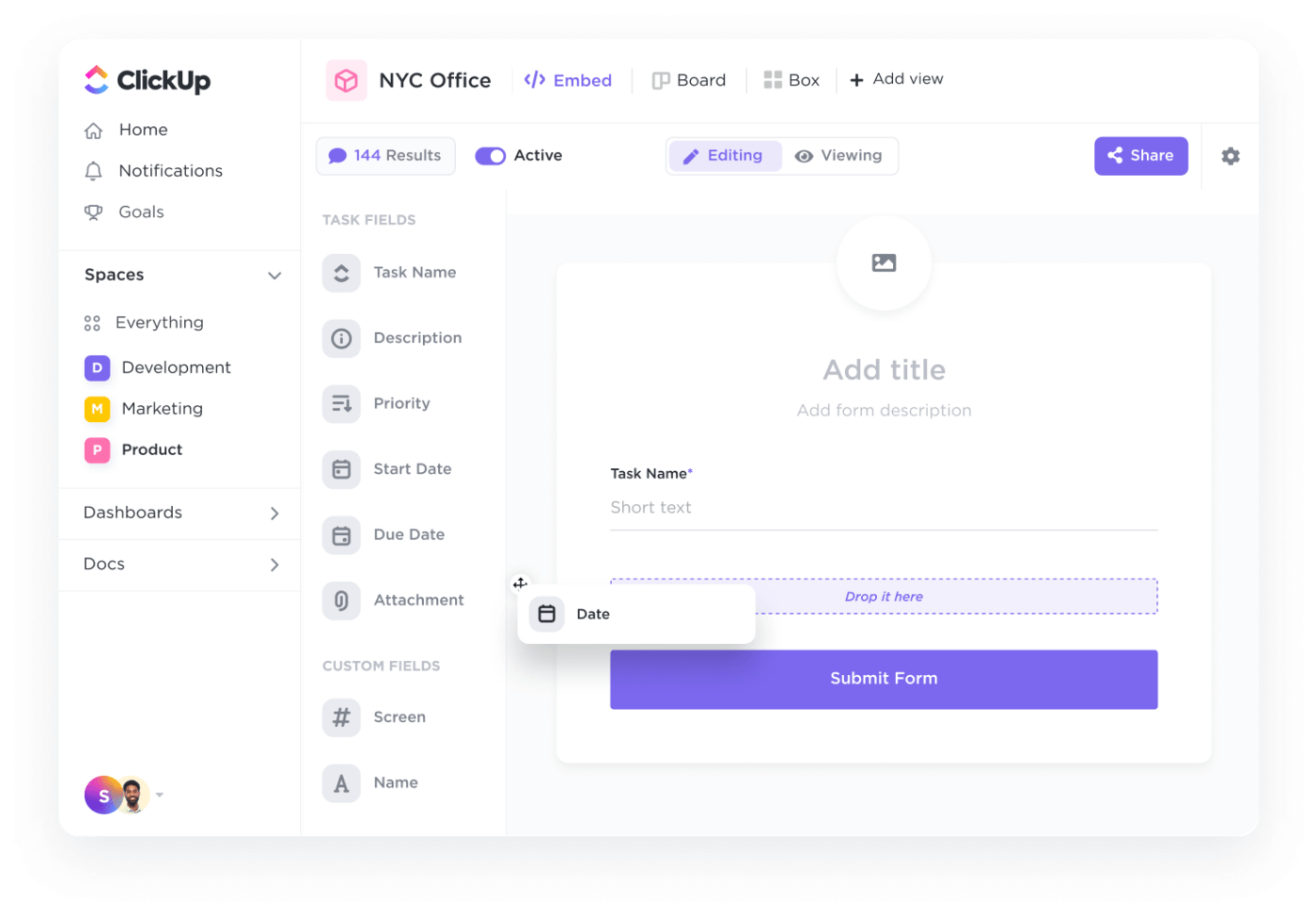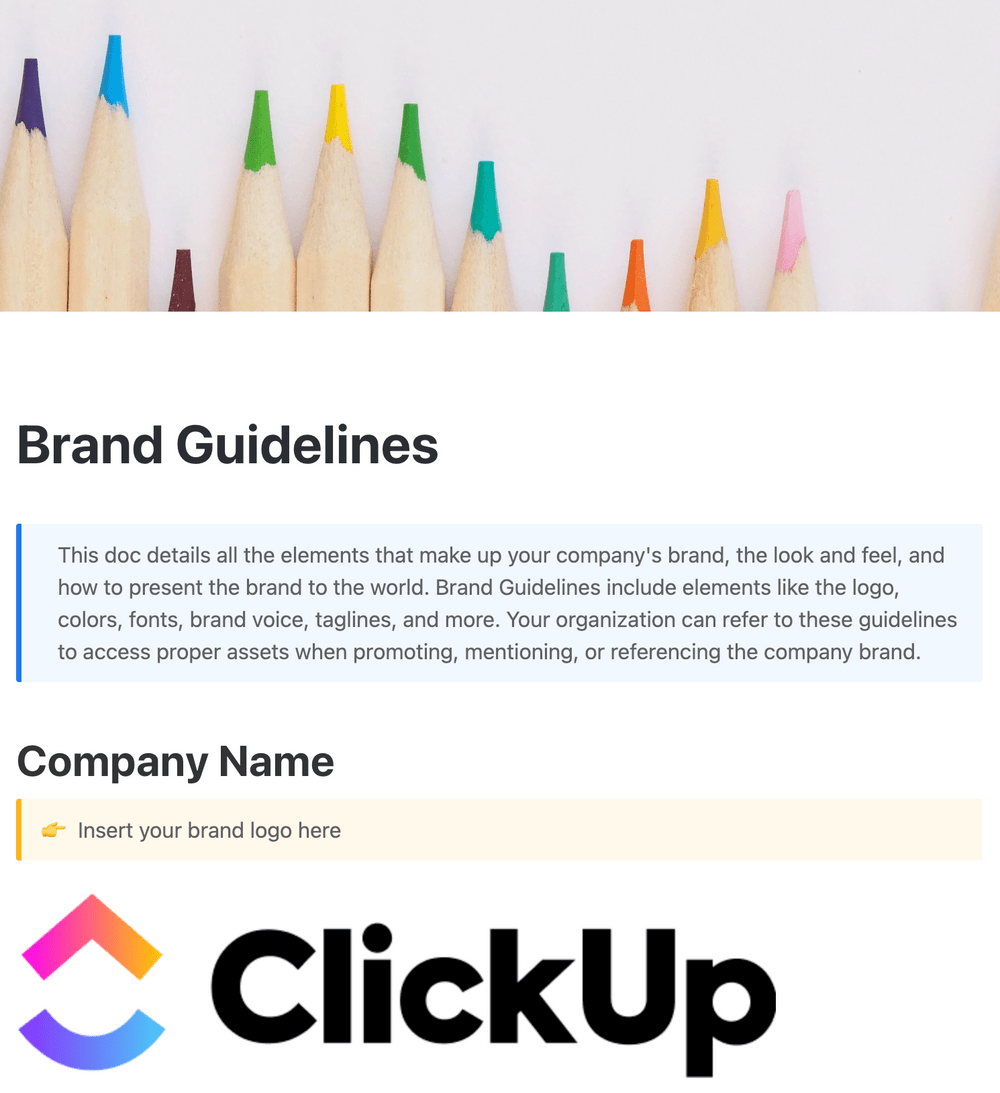

A lot has been written and spoken about brand management.
But here’s the most relatable brand management definition I’ve come across—brand management is your brand story unfolding endlessly.
As a brand manager, you’re the ‘director’ of your brand image.
You have to plot the storyline. Get all your brand assets in place. Even onboard strategic brand ambassadors to make your story a resounding success!
A lot goes behind successful brand marketing.
We’ve put together this guide as your introduction to the process and principles of brand management.
- What is Brand Management?
- How Does Brand Management Work?
- Elements of Effective Brand Management for Stellar Brand Performance
- Benefits of Strategic Brand Management for Brand Equity
- Common Brand Management Challenges
- Tips for Effective Brand Management for Companies
- 3 Examples of Brand Management in Action
- The Impact of Social Media on Brand Management
- Your Brand Management Software is Your Ally
- Common FAQs
What is Brand Management?
Brand management is the process where a brand manager uses various marketing techniques to:
- Boost the perceived value of your brand and increase brand awareness
- Increase the price value of your product
- Build the loyalty of your target market with positive associations
A brand manager’s role is to align what people think about the brand with what the company wants people to think (and vice-versa).
This gives rise to the concept of brand equity in brand management.
How Does Brand Management Work?
It wouldn’t be an overstatement to say that brand management is both an art and a science.
If done right, your brand management efforts can:
- Influence the customer experience positively
- Improve brand consideration and brand recognition in the process
- Build, measure, and manage brand equity, especially on data-first channels like social handles and email marketing
- Build trust and boost customer lifetime value
- Maintain your brand image via continuous efforts
If your brand strategy is accurate, it can also give you a competitive edge.
However, the process of building a successful and influential brand takes years. Some of the most iconic, unforgettable brands that have created their mark with a solid brand management strategy include Coca-Cola, Apple, Microsoft, Spotify, Netflix, Nike, and more.
With a strong brand presence, you can command higher prices for your products, differentiate your offering, and build brand affinity organically without spending thousands of dollars on paid marketing.
Elements of Effective Brand Management for Stellar Brand Performance

Three brand management elements shape your brand performance. Consider these when creating your brand strategy:
Brand equity
The commercial value of your product is extremely crucial in building brand awareness. High brand equity translates to higher sales (and vice-versa).
Brand recognition
Your brand’s reputation is central to whether or not it can invoke a positive emotion in the customer. If your customers respond positively to your digital marketing efforts, you are on the right path. Use branding templates and style guide templates to bring uniformity into your branding collaterals to boost your brand’s recall factor.
Brand loyalty
If your customer positively associates with your brand, they will remain loyal to it, even in trying times. The end goal is to make customers trust your brand so that they drive positive word-of-mouth publicity and get more potential customers through the door.
Benefits of Strategic Brand Management for Brand Equity
Let’s now look at what makes good brand management important.
Effective brand marketing strategies bring multiple benefits to the table, such as:
- Improved brand equity due to a seamless customer experience that leaves a positive impact on customers
- Organic brand growth on social media, the web, etc., due to consistent messaging that resonates with the audience
- Enhanced brand recognition and brand awareness due to positive brand associations by customers
- Improved brand perception that can help differentiate the company’s product or service from those of competitors
- Increased customer loyalty and brand loyalty, leading to repeat purchases, scope for premium pricing, higher sales, and profitable revenues
- Enhanced internal buy-in from employees on the brand’s values, beliefs, and principles
- Stronger customer lifetime value from a loyal customer base that keeps coming back for more
- Stable financials during downturns and a trustworthy image in the eyes of the customer
Common Brand Management Challenges
Brand management requires marketers to maintain a balance across multiple fronts. At the heart of every successful brand lies a team that manages to juggle various assets, ensuring that each piece contributes positively to building brand equity and nurturing a loyal customer base.
The challenges brand managers face are multifaceted—from ensuring brand consistency across all channels to managing the creative process and keeping up with the fast-paced digital landscape.
Brand managers often grapple with these challenges:
- Maintaining consistency: Ensuring that every piece of content, advertisement, or communication aligns with the brand’s voice, values, and visual identity
- Managing deliverables: Keeping track of numerous projects, deadlines, and cross-department collaborations without losing sight of the overall brand strategy
- Gathering and incorporating feedback: Efficiently collecting feedback from stakeholders and customers and incorporating it into the brand strategy and creatives
- Measuring success: Setting clear objectives and accurately measuring the success of brand initiatives against these targets
Tips for Effective Brand Management for Companies
Define your brand strategy
This is the cornerstone of all your brand management efforts. It involves understanding what sets your brand apart and how you can leverage this uniqueness in your communications. Your brand strategy should be the foundation that guides all your marketing efforts, from visual design to content creation. To do this well, marketers must have a clear idea about their brand positioning and overall narrative.
Rely on storytelling
Your brand’s story is what makes it relatable to your audience. Focus on crafting narratives that resonate on a human level, highlighting your brand’s journey, values, and the people behind it. Authentic storytelling can forge a deep connection with your audience, turning customers into brand advocates
Engage actively with your audience
Utilize social media and other online platforms not just to broadcast your messages but to engage in conversations. Listening to your audience and responding to their feedback makes your brand more approachable and relatable
Empower your employees
Your employees are your brand’s ambassadors. Encouraging them to embody and express your brand’s values in their daily interactions can amplify your brand’s presence and authenticity
Consistency is key
Ensure your brand’s visual and verbal identity remains consistent across all channels. This consistency helps reinforce your brand identity and aids in building trust with your audience. You can make this easier for all your teammates by centralizing all brand assets in one place, with role-based access to all who need it.
Adapt to change
Effective brand management also involves staying updated about changing customer preferences and alterations in your competitive landscape and finding ways to adapt to these changes in a way that has a positive impact on the brand.
Fortunately, tools are available to alleviate these pain points and streamline the brand management process. Among them, ClickUp Marketing Project Management Software stands out with its marketer-friendly features tailored to enhance brand management efforts.

Leveraging ClickUp for Brand Management
While traditional brand management techniques remain vital, integrating technology can significantly enhance efficiency and effectiveness. ClickUp’s suite of tools offers solutions tailored for brand management.
Here’s how the ClickUp Brand Management Software can support your brand management strategies:
ClickUp Goals to track brand metrics
ClickUp Goals allows you to create trackable goals.
In the context of brand management, this enables you to:
- Stay on track with your objectives and set clear timelines
- Measure targets with numerical, true/false, monetary values
- Automate your progress-tracking process
- Create targets by adding tasks from different teams into a Goal

ClickUp Form view to evaluate and collect feedback easily
The grunt work of collecting feedback starts with building the form.
ClickUp Form View makes this process less effort-intensive, thanks to its drag-and-drop builder.

Let’s say you want to collect product feedback.
Here’s how ClickUp Form’s conditional logic feature works if you want to collect authentic customer feedback on your product.

ClickUp Brand Guidelines Template to align brand strategies and initiatives
Aligning brand strategies for your teams never takes priority, but it should.
What if you had a document that detailed all the elements (read: logo, colors, fonts, brand voice, taglines, etc.) that make up your company’s brand? A sharable document like this can be the first step in enabling brand consistency across all your customer touchpoints.
Enter ClickUp Brand Guidelines Template.
From understanding the look and feel to learning how to present your brand to the world, this brand guideline template will be your go-to document for all things visuals.
ClickUp Whiteboards to create—and visualize—brand design elements
ClickUp Whiteboards are fun.
You get to play around with shapes and layouts while collaborating with your team.
Use the world’s only virtual whiteboard to convert your team’s ideas into coordinated actions—all in one place.
If you want to create an exciting canvas for your team to brainstorm, strategize, or mind-map, use ClickUp Whiteboards to your advantage:

3 Examples of Brand Management in Action
What does a strong brand presence look like in real life?
Take a look at these three brands that have a stellar branding strategy and double up as inspirational brand guidelines examples:
1. Vitable uses product design and aesthetics to increase its brand value

Vitable is a sustainable wellness brand that uses visual storytelling to communicate the brand’s focus on ‘clean eating.’
The use of a soft green with hand-written typography throughout the website is no coincidence.
It uses design and typography to create a positive brand association and offers personalized quizzes to improve the customer experience.
The takeaway
Think of your brand value for your target audience in incrementally visual terms.
Ask questions like—Is the website’s user interface minimal and clean? Are customers able to relate to your brand positioning? Do the brand identity elements help to create a positive affinity with the target audience?
2. Headspace has built a killer brand personality worth emulating
What is a successful brand?
One that is conscious of their identity and isn’t afraid of expressing it. One that consistently follows a brand narrative that connects with its audience.
In brand management, authenticity and a clear identity help build brand affinity and a steady stream of loyal customers.
Take Headspace’s example for a moment: Its brand strategy is to use a cheerful color palette that brings joy and calm to the onlooker—a move that makes sense, considering this is a meditation and sleep app to begin with.

The takeaway
Headspace demonstrates clear and consistent messaging about mindfulness and mental well-being across all its marketing channels. This clarity reinforces a strong brand identity and makes the product relatable and meaningful for the target audience.
3. Apple demonstrates the brand’s core values with its Mother Nature spot

In 2020, Apple promised to bring its carbon footprint to net zero by 2030.
Instead of boring customers with endless numbers and data, the brand rolled out a highly engaging commercial where Mother Nature (aka Octavia Spencer) is taking stock of the brand promise.
The brand’s success is rooted in its creative marketing strategy.
The brand messaging is to the point and entertaining, and the ad is a visual masterpiece.
The takeaway
Is your brand based on strong ethical grounds? Do everything you can to relay the brand’s core values across your digital marketing and advertising efforts—as Apple does with panache.
The Impact of Social Media on Brand Management
Wondering about the impact of social media in the age of brand management?
Experts claim social media-driven branding to be a better alternative to branded content.
Here’s what recent data about social media tells us:
- 94% of respondents believe social media has a positive impact on brand loyalty
- 92% of business leaders believe that social insights positively impact competitive brand positioning, and 88% claim it is critical to delivering an exceptional customer experience
- 91% of leaders claim social data enables them to get a better pulse of the target market
- 68% of customers follow a brand on social handles to stay informed about the latest products/services
Originally, marketers wanted to leverage platforms such as Meta, YouTube, and Twitter to connect directly with customers and bypass traditional channels —and they’ve accomplished this to a large extent.
The fact that there were 100 million users active on Instagram Threads is all the proof you need.

Customers aren’t afraid to engage with new channels to reconnect with brands and get the conversion flowing.
However, with the influx of innovative social channels, brand managers have to deal with increasingly complex social media marketing workflows
Managers must consider using process mapping tools to reduce bottlenecks and optimize operations .
Your Brand Management Software is Your Ally
It’s tough being a brand manager in today’s fast-changing world of memes and moment marketing. Not only do you have to manage the expectations of customers as well as internal stakeholders, but you also must ensure you’re on top of multiple processes with several moving parts. To top it off, there is the incessant pressure to be innovative and fresh and keep everybody on the same page even as you move fast.
You need all the help you can get.
If you haven’t considered investing in a brand asset management software like ClickUp yet, you’ve missed a trick.
With ClickUp as your ally, you not only have a shared workspace to manage and share all your brand assets, but you also have an aide to take care of mundane work like reporting and tracking progress on tasks and goals. Work collaboratively across teams and save hours in your week with ClickUp.
Take ClickUp for a spin today.
Common FAQs
1. What is the goal of brand management?
The goal of brand management is to create, reinforce, and maintain a differentiated position for a brand in the minds of the target audience. Brand managers achieve this with the strategic use of brand elements like tone of voice, imagery, language, font, etc.
2. How does brand management work?
Brand management begins with reinforcing your core brand values.
A subset of marketing, brand management leverages techniques to:
- Enhance the perceived value of a product/brand over time
- Boost the price of products with an improved brand reputation
- Increase customer loyalty due to brand trust
3. What are effective brand management techniques?
An effective brand management strategy encapsulates the following techniques:
- Understanding your ideal target audience in terms of what motivates them to prioritize your product/service over your competitors
- Studying the competitive landscape to understand what sets your brand apart
- Ensuring your brand values are well-defined and in alignment with your target audience’s expectations
4. What are the differences between brand management and marketing?
When it comes to the common perception of brand management and marketing, the lines blur.
However, there’s a distinct difference between the two—A brand management strategy helps build the brand identity, whereas marketing drives campaigns to improve the brand’s reputation, engagement, and revenue.




